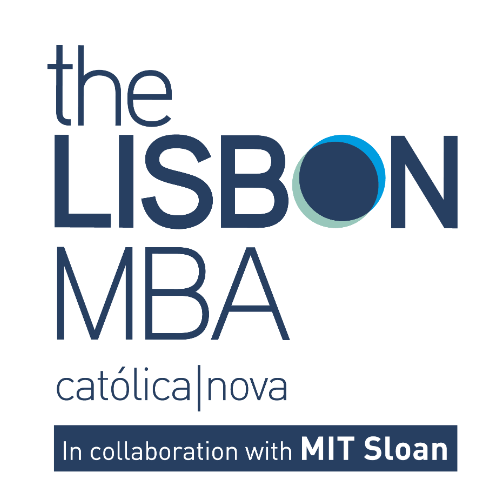Many things have changed in the last 3000 years, but for European startup leaders, Lisbon's reputation as a safe port in the stormy waters of global business still holds true.
In 2016, the Portuguese government launched the StartUP voucher initiative, offering year-long fellowships to more than 400 entrepreneurs, as well as setting up a $225 million venture capital fund to energize their burgeoning startup scene.
The result is a rapidly-growing entrepreneurial ecosystem and a hospitable environment for new talent, particularly in the high-tech industry. Business Insider even named Lisbon one of its six global startup hubs to watch in 2019.
For students on Lisbon’s home-grown MBA program, The Lisbon MBA, this environment is a stepping stone towards setting up your own business.
Getting in on the action
Aga Brzycka (pictured) is a graduate of The Lisbon MBA’s 2017 class. She joined the MBA from a career spanning across Europe, working in roles such as program logistics specialist at Viasat Broadcasting in London and agile project manager at Monterail software in Poland.
She enrolled on the MBA to marry her curiosity about the disruption she’d witnessed in the media space, particularly from tech-based startups like Netflix, with the principles of agile development and lean production that she’d experienced working in software.
In a tech hub like Lisbon, Aga reasoned, this wouldn’t be hard to do—particularly with The Lisbon MBA’s attention to action learning.
This utilizes the MBA’s great location, and its collaborative status as the joint effort of three universities—Nova School of Business and Economics, Católica Lisbon, and the Massachusetts Institute of Technology (MIT) Sloan School of Management—in order to give students a kick-start on their passion projects.
As well as opportunities to experience business abroad, take part in internships, and even complete an immersion on MIT Sloan’s campus in the US, one of the most attractive opportunities for MBA entrepreneurs is the chance to spend time nurturing a startup idea in one of the city’s many startup hubs.
“To experience all of this in the scope of a year seemed so versatile and compact that the value was really there for me,” Aga enthuses.
Affordability
This roster of activities is particularly attractive when one considers the cost of an MBA.
At only €38,000 ($43,000), The Lisbon MBA is a fraction of the cost of many two-year programs, and Lisbon itself is one of Western Europe’s more affordable capital cities in terms of living costs.
“This is beneficial for a person thinking of starting their own startup,” Aga points out. “I wanted to go into a program with affordable tuition so that my scope of choices wouldn’t be limited when I finished the MBA.
“It’s a debate that’s very present now in the United States concerning the debt structure that students go into, which prevents a lot of them from exploring entrepreneurship and [alternative] employment paths.”
A friendly city
After spending the final two semesters of the MBA focusing on her startup project, Aga moved to Germany where she has joined a makers’ space for hardware innovators. She has been there for over a year now, freelancing as a strategy consultant whilst continuing work on her startup, which she says is a 'far innovation' project that may take many years of innovating to implement.
“In the community where I work now, I’m exposed to founders at an early stage of development, talking about their problems, and how they’re overcoming them,” Aga explains.
“I spoke with two founders last week who were having difficulties because partnerships between cofounders all boil down to soft skills like trust and communication.”
Luckily for grads from Lisbon, this is something that the MBA prepares for.
Soft skills workshops like the school’s Friday Forum series work together with the welcoming atmosphere in the city to help open students up to forging new and real connections with other leaders, both professionally and personally.
“I don’t think have ever come to a country and had such a big group of true friends as quickly as I did in Lisbon,” she says. “There’s a feeling of community, and a vibrant work-life balance.”
This experience has made her stronger as an entrepreneur and as a leader.
“I’m living proof of how important it is to develop your soft skills if your goal with an MBA is to develop yourself as a leader and a capable achiever,” she says. “It really can make or break the company you’re trying to build.”
*Featured image used under this licence









